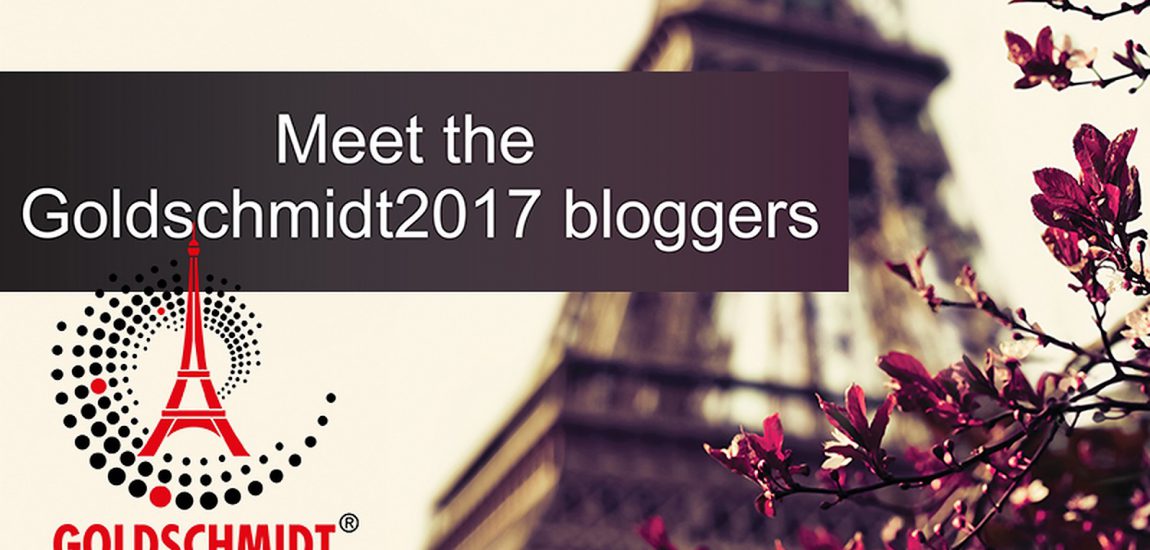
Dr Shuhei Ono – protect people from academic bullying
Dr Shuhei Ono is the 2017 Gast Lecturer. Dr Ono is a ‘hard-core’ isotope geochemist and feel that we should protect all scientists from academic bullying, especially Early-Career Scientists.
This interview focuses on the interviewee, and therefore my own commentary is reduced to an absolute minimum, for now.
Sami: Congratulations on the 2017 Gast Lectureship, and thank you for agreeing to this interview.
Shuhei: Thank you for the congratulations, and for interviewing me.
Sami: How would you describe yourself, professionally?
Shuhei: I am a Hard-core isotope geochemist.
Sami: Brilliant description! What do you want to achieve with these hard-core isotope ratios?
Shuhei: I want to see where things are coming from, and where they’re going. For example, I want to understand the sulfur and methane element cycles through the Earth-system(s). I also like unique isotope systems and enjoy thinking and moving beyond the traditional spectrum.
Sami: What do you mean by moving beyond the traditional spectrum?
Shuhei: Well, I want to move beyond Harold Urey.
Sami: Woah. I like your ambition.
Shuhei: [laughs and smiles]
Sami: What is your current position?
Shuhei: I am an associate professor at MIT.
Sami: That sounds like a cool job. So you’re a hard-core isotope geochemist, but what was the subject of your education?
Shuhei: My BSc was in Geology, then I undertook an MSc in economic geology working on Skarn deposit. Both at Waseda University, Japan. Then I moved to the USA and undertook a PhD isotope geochemistry (Penn State).
Sami: Who are you, personally? What are your non-scientific hobbies?
Shuhei: I have 2 children, so my hobbies are whatever they are interested in. When they were smaller we used to hunt for creatures on the beach, but now they like sports, especially swimming. We together study the mechanics of their swimming, which is about cross sections and acceleration, and we talk how to improve our efficiency in the water.
Sami & Shuhei: We both laughed at this honest admission of geekery.
Shuhei: Also, when I was in Penn State, my friend taught me fly fishing, which is fun, but complicated. For example, the weather, season, and time of day really affect the chances of catching fish. Just like your life, you need to be at the right place at the right time with the right tool. This hobby also allowed me to meet different people – who were mostly senior retired people, called Bob or John.
Sami: What do you identify as a major challenge to early-career scientists?
Shuhei: You realise some people get very personal with their models, and they might get too attached. This is something you and I must keep in mind, because we all try to find the best model to describe a natural system. It should not be about the person, and we should always contain our argument in science. I mean, geochemistry always has uncertainty, right? Think about it, no model is unambiguously correct, and chances are high that your models will be either replaced or updated eventually by the next generation scientists.
Sami: You mean a kind of friendly competition?
Shuhei: Yes. But more importantly, we should all help our peers from becoming personal and protect people from academic bullying. Other people’s business is not your business. But if you see a peer unfairly pressuring someone, especially junior scientists, then their business should be your business, as a community.
Sami: Has the EAG or the Geochemical Society played a positive role in your professional development? Or person? If so, how?
Shuhei: I was on the local organising committee for the Yokohama meeting in Japan – even though I grew up there and do not live there now! So, I was no longer local, really. But I learned a lot about the meeting logistics, and the massive and selfless community effort that goes into a Goldschmidt meeting. For example, waiting in a long line for the beer, and having conflicting schedules for talks is something that the organizing committees work hard to eradicate. But it is super tough. So, I don’t complain anymore about these things because I now know how hard people work so hard to make Goldschmidt better. I am now serving as Co-Chair for the Boston meeting, and I want to make the Boston meeting great. I encourage people to engage with things like Geochemical News. I learned how to to communicate with the pubic. At first I thought science communication to the public was not hard-core enough for me, but then I realised I needed to learn how to communicate the hard-core to the general population. Because if we don’t share the science, then what’s the point?
Sami: If you had a time machine and could witness any event, or see any period in geological time, what would you choose to see?
Shuhei: I would want to go and see the Earth before the oxidation of the atmosphere
Sami: That’s a lot of Earth’s history, right? Would you be interested in the Hadean, or the Archean?
Shuhei: Oh, yeah it is! I’d want to visit the Archean. I want to to measure oxygen, CH4, CO2, and the temperature of the Archean atmosphere. I’d want to see if the oceans have any sulphate. I’d also bring samples back! I’d visit the late Archean and breath the first whiff of O2 in the air, swim in the Archean ocean, see the moon when it was bigger in the sky, and then surf on the waves because they would have been bigger than the waves today!
